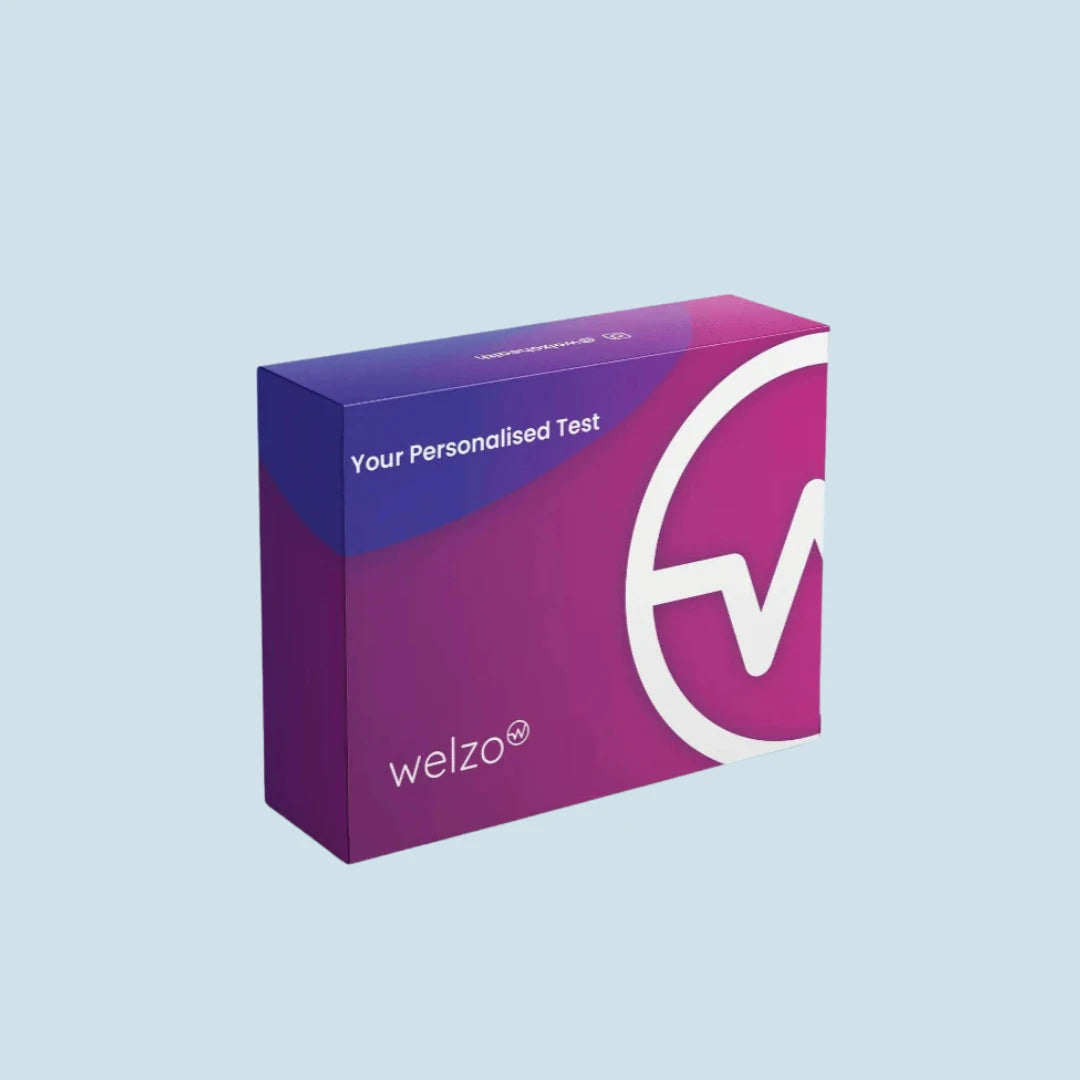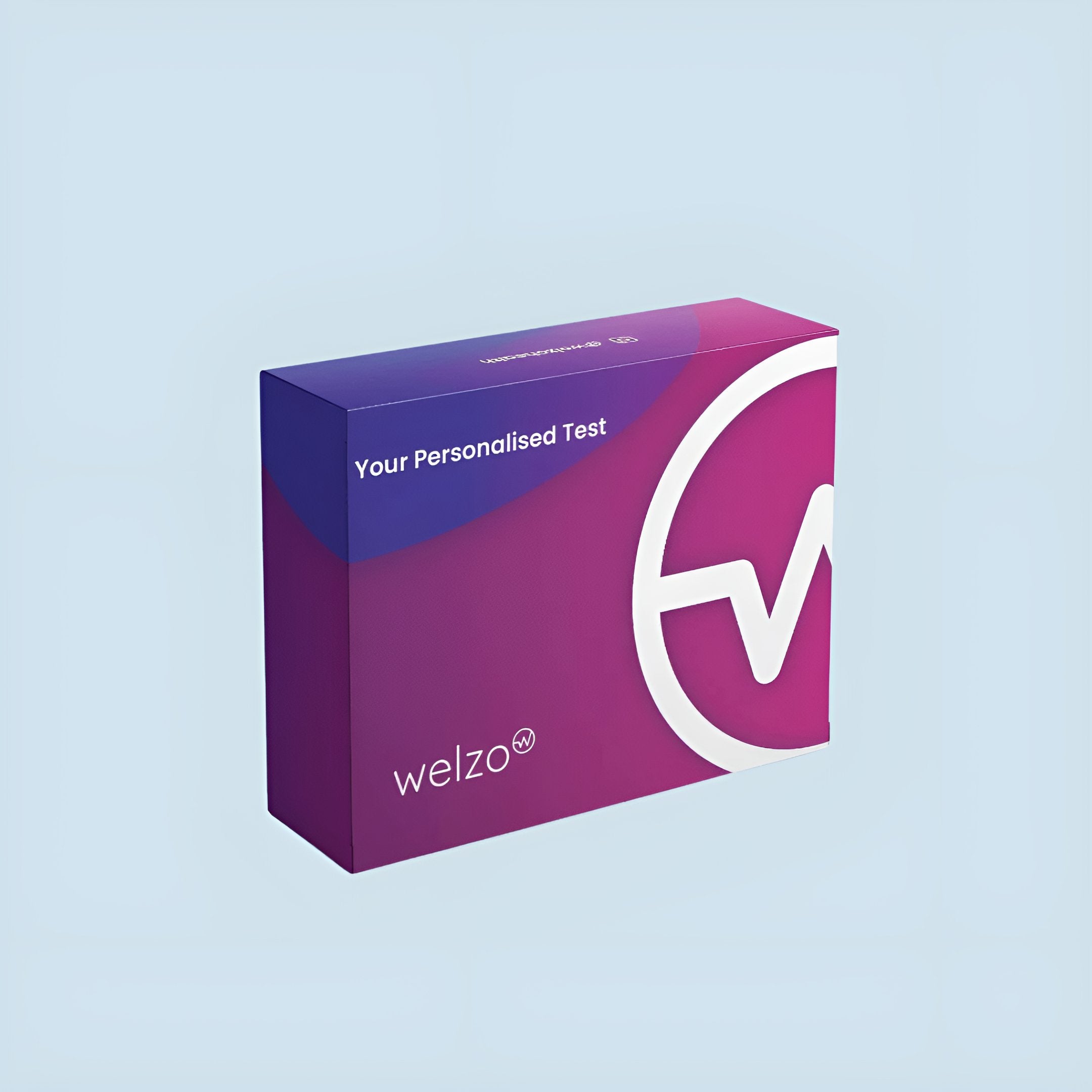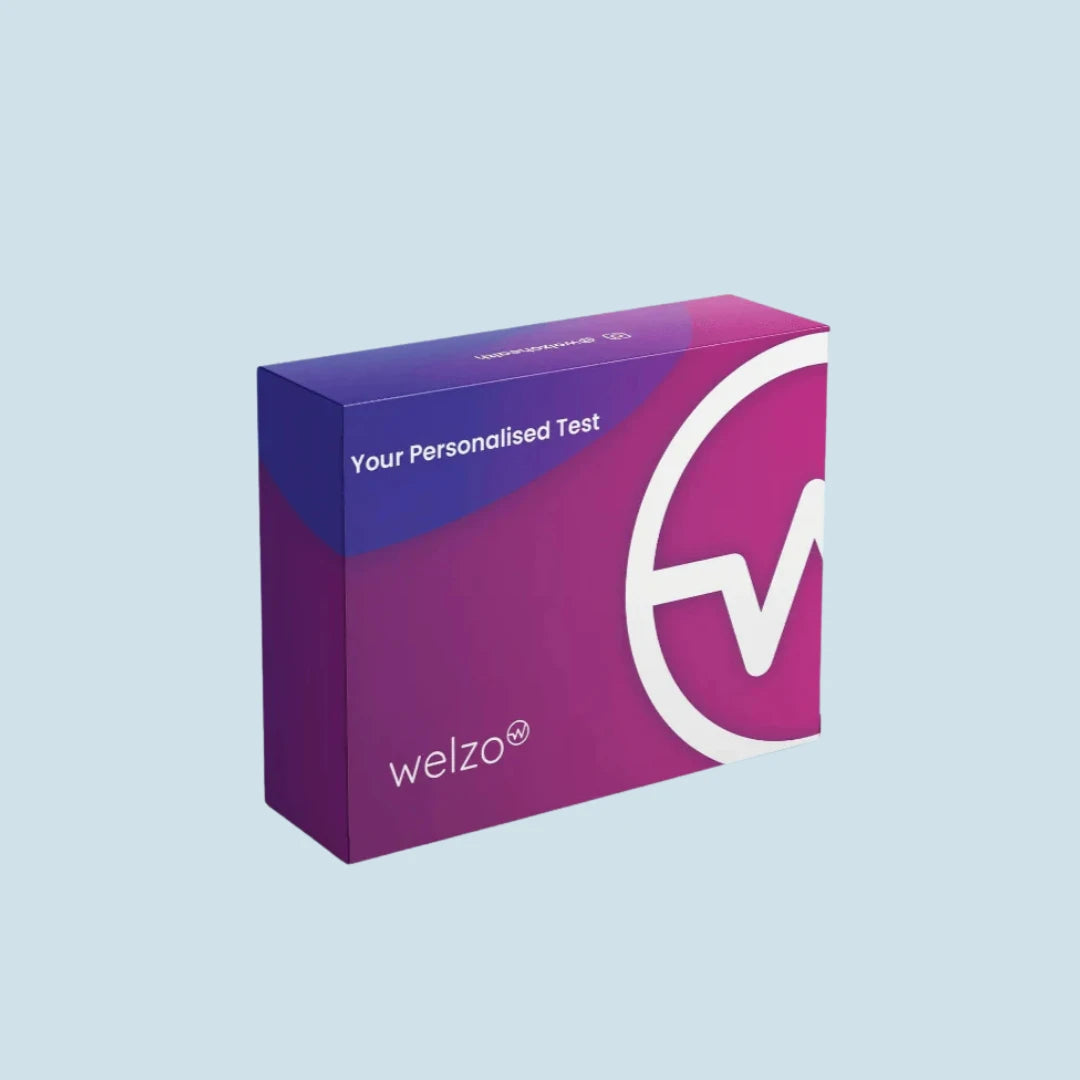Thyroid-stimulating hormone (TSH) test

Related products
What is thyroid hormone?
The thyroid hormone is essential for regulating the body's metabolism, energy levels, temperature, and organ function. Produced by the thyroid gland—a butterfly-shaped endocrine organ located at the front of the neck—it plays a critical role in maintaining physiological balance. The gland synthesises two main hormones: thyroxine (T4) and triiodothyronine (T3). T4 accounts for about 95% of thyroid hormone in circulation and is converted into the more active T3 form within body tissues, especially in the liver and brain. While most thyroid hormone in the blood is bound to proteins, only the "free" form is biologically active and capable of influencing metabolic functions.
Free T3 and T4 are necessary for cellular growth, neurological development, cardiovascular health, and thermoregulation. Their availability directly affects how efficiently the body uses oxygen and energy. When levels become imbalanced, a person may experience wide-ranging symptoms, from weight fluctuations to mental sluggishness or hyperactivity. Therefore, thyroid testing often includes measurements of both free and total T3 and T4 to assess the thyroid gland’s overall function and its influence on the endocrine system.
For those needing a broad overview of hormonal balance, the Full Body MOT Health Check is an excellent starting point. It screens multiple biomarkers, including those related to thyroid health, for a full picture of your wellbeing.
What is a TSH test?
The TSH test is a blood analysis that measures the level of thyroid-stimulating hormone in your system. This hormone is secreted by the pituitary gland located at the base of the brain and acts as a regulator of the thyroid gland. When thyroid hormone levels drop, the pituitary gland produces more TSH to stimulate hormone production. Conversely, if thyroid hormone levels are too high, the pituitary reduces TSH output to restore hormonal balance.
This test provides crucial insight into the health of the thyroid-pituitary feedback loop. It is often the first diagnostic step when evaluating patients with suspected thyroid disorders. By understanding TSH levels, healthcare providers can identify whether a thyroid imbalance exists and whether it may stem from the gland itself or from pituitary dysfunction.
TSH testing can also be part of routine health check-ups, especially in older adults, pregnant women, and individuals with a family history of thyroid conditions. It is widely regarded as one of the most effective screening methods for detecting both overt and subclinical thyroid issues, including hypothyroidism and hyperthyroidism, before more severe symptoms develop.
Why do I need a TSH test?
A TSH test is necessary for anyone experiencing symptoms related to abnormal thyroid hormone levels. These symptoms may arise gradually, making them difficult to attribute to thyroid dysfunction at first. The test is often ordered to diagnose or rule out conditions such as hypothyroidism (underactive thyroid) and hyperthyroidism (overactive thyroid).
Symptoms of hyperthyroidism include:
-
Unexplained weight loss despite a normal or increased appetite
-
Anxiety or irritability
-
Heart palpitations and increased heart rate
-
Insomnia or difficulty sleeping
-
Sweating and heat intolerance
-
Enlarged thyroid (goitre)
-
Frequent bowel movements
In contrast, symptoms of hypothyroidism include:
-
Fatigue and weakness
-
Unexplained weight gain
-
Constipation
-
Depression or low mood
-
Sensitivity to cold
-
Dry skin and thinning hair
-
Irregular or heavy menstrual periods
Because these symptoms often overlap with other health issues, a TSH test can clarify the root cause. The Cholesterol Blood Test may also be used alongside TSH testing to evaluate broader metabolic risk, especially in those with weight changes or fatigue.
What happens during a TSH test?
A TSH test involves a straightforward blood draw performed in a medical setting. A healthcare provider or technician will insert a needle into a vein—usually in your arm—and collect a small sample of blood in a vial or test tube. While the procedure is quick and typically lasts under five minutes, some people may feel a brief sting or pinch during the needle insertion.
In most cases, there’s no special preparation required before a TSH test. However, if your physician has also ordered additional blood tests—particularly those that measure glucose or lipid levels—you may be asked to fast beforehand. Always follow any pre-test instructions provided by your healthcare provider to ensure accurate results.
If you suspect hormonal causes behind mood swings or weight gain, you might also benefit from the Free Testosterone Blood Test, which provides insights into androgen levels and can be helpful when evaluating thyroid-linked hormonal imbalances.
Are there any risks involved?
TSH testing is considered extremely safe, with minimal risks involved. The most common side effects are minor and include:
-
Mild soreness or bruising at the site of the blood draw
-
Slight dizziness or light-headedness, especially if you’re sensitive to needles
-
Very rare cases of infection or excessive bleeding at the puncture site
If you’re anxious about needles or blood draws, inform your healthcare provider beforehand. They can help ease the process and ensure you’re as comfortable as possible.
The All Health Tests Collection on Welzo’s platform offers access to a wide variety of blood tests to support comprehensive health tracking from the comfort of home.
Understanding Your TSH Test Results
Interpreting TSH test results involves comparing your hormone levels to a standard reference range. While these ranges may vary slightly between laboratories, typical TSH values for adults generally fall between 0.4 and 4.0 mIU/L. Deviations from this range may signal an underlying thyroid disorder:
-
High TSH levels usually indicate hypothyroidism, meaning your thyroid isn’t producing enough hormones. This triggers the pituitary gland to release more TSH to stimulate the thyroid.
-
Low TSH levels often suggest hyperthyroidism, where the thyroid is producing too much hormone, leading to suppressed TSH secretion from the pituitary.
For further clarity on adrenal contributions to hormone function, the Cortisol Blood Test may offer valuable insights—particularly in those with stress-related symptoms, fatigue, or endocrine abnormalities.
What is a T4 test?
The T4 test measures levels of thyroxine, the predominant hormone secreted by the thyroid gland. It is available in two forms in the bloodstream—Total T4 (which includes both bound and free hormone) and Free T4 (which only includes unbound, biologically active hormone). While Total T4 offers insight into overall hormone production, Free T4 is often more clinically relevant because it reflects the amount of hormone available to tissues.
Elevated Total T4 levels may occur in individuals with increased thyroid-binding proteins, commonly seen during pregnancy or with oestrogen-containing medications like birth control pills. Conversely, low Total T4 levels may be associated with androgen therapy, anabolic steroids, or chronic illness. These variations don’t necessarily imply thyroid dysfunction.
A CRP Blood Test can also be helpful when interpreting thyroid results in patients with chronic inflammation, which is known to influence hormone conversion and absorption.
What is a T3 test?
The T3 test measures levels of triiodothyronine, the more active thyroid hormone that directly influences metabolic rate and energy utilisation. Like T4, T3 is measured in both Total and Free forms. A Total T3 test evaluates the overall circulating hormone, while Free T3 assesses the unbound, active component.
T3 testing is especially useful in diagnosing hyperthyroidism. In many cases, patients with elevated T3 and suppressed TSH levels are experiencing early stages of Graves’ disease or another form of thyroid overactivity. Some individuals may present with isolated T3 elevation, known as T3 toxicosis, even when T4 levels remain normal.
Patients focused on fitness goals who suspect hormonal imbalance might also benefit from combining thyroid panels with an AMH Blood Test, which evaluates fertility potential and ovarian function.
Pregnancy and TSH: What You Should Know
Thyroid hormone plays a pivotal role during pregnancy, both for maternal wellbeing and foetal development. Elevated or suppressed TSH levels during pregnancy can increase the risk of complications such as preterm birth, preeclampsia, and developmental delays. As such, routine thyroid screening is increasingly recommended during early pregnancy, especially in women with known risk factors.
The demand for thyroid hormone rises during pregnancy, often leading to temporary fluctuations in TSH, T3, and T4 levels. In most cases, these changes remain within acceptable ranges and don’t require medical intervention. However, when abnormal readings persist, treatment with levothyroxine or other medications may be necessary to maintain hormonal balance.
Explore the Intolerance Test Collection if you’re managing gastrointestinal symptoms that may overlap with hormonal imbalances during pregnancy.
Conclusion
A TSH test is a cornerstone of modern diagnostic medicine, offering essential insights into thyroid function and systemic hormonal balance. Whether you are experiencing symptoms such as fatigue, mood swings, or weight changes—or simply want a routine health check—this test provides a valuable snapshot of your endocrine health.
When interpreted alongside additional tests such as T3, T4, and CRP, the TSH test helps pinpoint thyroid disorders early, preventing more serious health issues down the line. It’s a simple, low-risk procedure with powerful diagnostic utility, particularly for women, the elderly, and individuals with autoimmune or hormonal concerns.
Welzo makes thyroid screening more accessible than ever through its digital healthcare platform. Their Home Blood Test Hub offers an entry point to at-home diagnostics, allowing you to order a test, collect a sample, and receive GP-reviewed results without leaving your home.
By prioritising thyroid health and leveraging modern testing tools, individuals can proactively manage their wellbeing, optimise their energy levels, and reduce the long-term risks of untreated thyroid dysfunction.





























 Rated Excellent by 26,523+ Reviews
Rated Excellent by 26,523+ Reviews